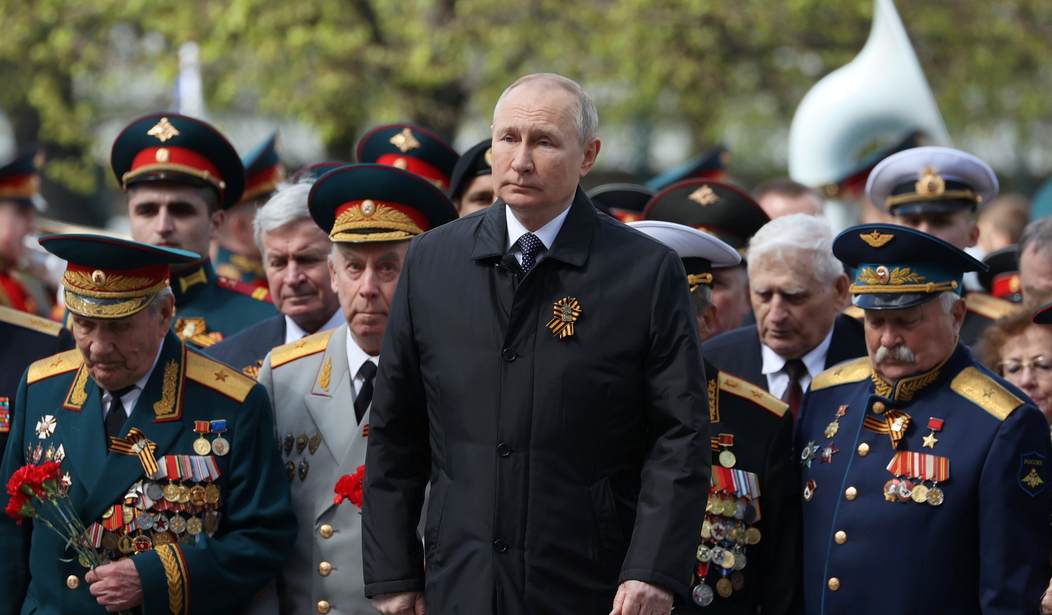For Ukrainians, Dec. 16 was another terrible day of the war. Russia fired 76 missiles into their country, most of the missiles slamming into cities. On Dec. 19 Russia launched a similar attack, this time with Iranian-made kamikaze (self-detonating) drones augmenting the missiles.
According to Vladimir Putin's Kremlin propagandists, the exploding drones and the short and medium-range missile barrage struck military targets and 'infrastructure.'
Infrastructure is a colorless and elastic term that can mean almost anything. A civilian home is an infrastructure, and so is a personal home electrical generator. A taxicab can move troops. Presto -- it's a military target.
Mass attacks using missiles and drones armed with high explosive munitions with cities as their target -- it appears Putin is pursuing an ad hoc form of strategic bombing.
After WWI Italian Gen. Guilo Douhet argued that fleets of bombers targeting enemy industry, transportation networks, and yes, enemy population centers would determine the outcome of future wars. Bombing strategic targets would damage the entire enemy war effort. Eventually, enemy forces would lack food, ammo, and gas. Douhet argued that sustained mass attacks on cities would so terrorize the population they would lose the will to fight and surrender.
Douhet was an innovator. He commanded Italian aircraft in the first modern air war, the obscure but fascinating Turco-Italian War of 1911-1912. Fought in Libya, Italian monoplanes and dirigibles dropped grenades on Turkish Arab auxiliaries. (I cover the war in "Ataturk: Lessons in Leadership from the Greatest General of the Ottoman Empire.")
Recommended
Subsequent history, however, has not followed Douhet's surrender theory. The 1930s: Japanese "terror" air attacks on Chinese cities didn't force capitulation, nor did Italian air attacks on Ethiopian villages. The 1940s: Germany's blitz of Britain only hardened civilian resistance. U.S. and British mass air raids didn't lead to the German surrender. U.S. firebomb raids on Tokyo failed to end Japanese resistance.
The atomic bombs on Hiroshima and Nagasaki -- arguably the only time strategic air raids led to surrender.
The Iran-Iraq War's "war of the cities" (the 1980s) killed and wounded thousands of civilians. Iraq launched on and off air and missile attacks against Iranian cities. Iran retaliated in kind. The result: infuriated Iraqis and Iranians ready for more war.
After the Dec. 16 attacks on his country, Ukrainian President Volodymyr Zelenskyy told the media that the missiles and drones are "used to strike primarily at our energy sector..." He added that the attacks left over 22 million Ukrainians (about half the population) without "energy." Kyiv's mayor told Reuters after the attack only a third of his city's residents "had both heat and water and 40 percent electricity." The attack knocked out the commuter train system.
The Ukrainian government warns that Russia still has a very large missile stockpile and bombarding cities demonstrates why NATO and EU nations must provide Ukraine with modern and plentiful air defense weaponry that can intercept missiles and aircraft.
The American-made Patriot PAC-3 is a proven system that can intercept aircraft and both ballistic and cruise missiles. In my opinion, Ukraine should have received Patriot batteries months ago. Several NATO nations deploy it. Zelenskyy has specifically asked for the Patriot.
Ukraine has shown it has the will to fight and win. Putin's February quick war has become a December quagmire. Failing to win on the ground with a blitzkrieg stroke, he turned to WWI-type mass artillery attacks and infantry assaults on an entrenched battlefront. If reports are accurate, everyday Ukrainian forces, using superior artillery tactics, pinpoint targeting intelligence and mobile counterattacks, are killing ill-led and poorly trained Russian soldiers by the hundreds.
In the Iran-Iraq War, the belligerents both launched raids on population centers. Ukraine lacks offensive missiles with the range to hit targets in Russia, and NATO, fearing an expanded war, will not provide them.
Ukraine has managed at least two limited drone attacks on Russian strategic bomber bases inside Russian territory. Recent attacks on Russian oil and gas facilities may be Ukrainian-sponsored sabotage. These are pinprick operations, but they indicate the Ukrainians will take offensive action.
Putin is employing strategic air attacks on Ukrainian cities because Ukraine's air defenses are weak, and Ukraine cannot retaliate in kind. With threats of nuclear war failing to frighten the world, Putin thinks strategic air attacks are his winning card.
However, as the war grinds on and the Russian military's death toll mounts, it may be his only card.
Putin bets cold, hungry and bombing-terrorized Ukrainians will surrender, even if the British, Germans, Japanese, Ethiopians, et al. did not.
I think that's a bad bet.

























Join the conversation as a VIP Member